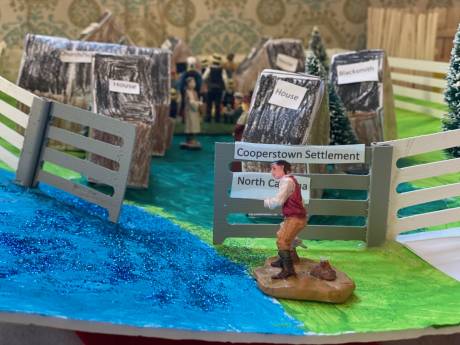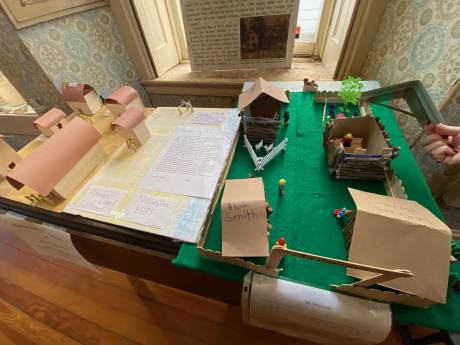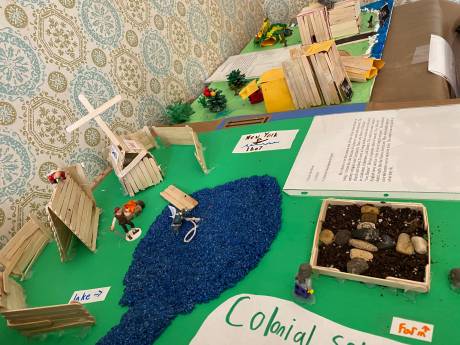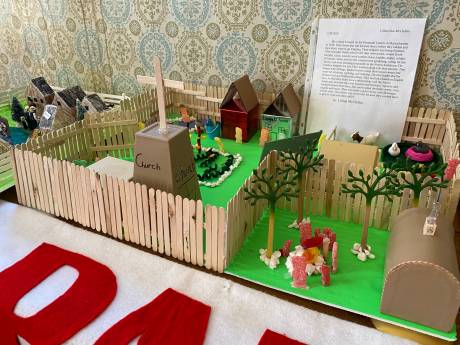
Fourth- and fifth-graders at St. Paul Lutheran School are proudly displaying their projects on "Early Colonial Settlements" at the Holland Land Office Museum.
They are the culmination of all they learned on the topic during the two-week lesson plan, which they began before National Lutheran Schools Week, Jan. 26-Feb. 1.
There was no America as we know it now, their teacher Jennifer Dunn explained to them.
Native Americans lived throughout the land. There were settlements by Puritans and Pilgrams from England, and by the Dutch, French and Spanish. Think Roanoke, Jamestown, Cooperstown, Plymouth.
Travel was difficult. Conditions primitive. Why did they take such risks to come here? How did they live day to day? What did they eat, or wear? What rules governed them?
Besides history, the studies emcompassed English Language Arts, social studies and geography.
Between the drears of winter and the sheer scope of written/verbal information, it seemed to Dunn that her students were getting sort of "overwhelmed" and bogged down by it all, including niggling details: at least four of the key people of the time had the first name John.
So she decided to have students do some research on their own and put their knowlege into the tangible form of displays with essays accompanying them.
"They did their own research themselves and they are proud of it," Dunn said. "It made history come alive."
Their fact-finding also helped clarify some confusing points.
And they created labels for the models -- made of stuff like wooden sticks, twigs, tempera paint, plastic barnyard animals, craft paper, even Rice Krispies -- with references to the essays they wrote.
Each child presented their work in front of their parents and the whole school.
It was a lot for 9- and 10-year-olds to master and their mastery is on display tomorrow Feb. 22 through Thursday, March 5, when the St. Paul students will retrieve their projects after a field trip to the museum.
Hours are 10 a.m. to 4 p.m. The location is 131 W. Main St. in the City of Batavia.



